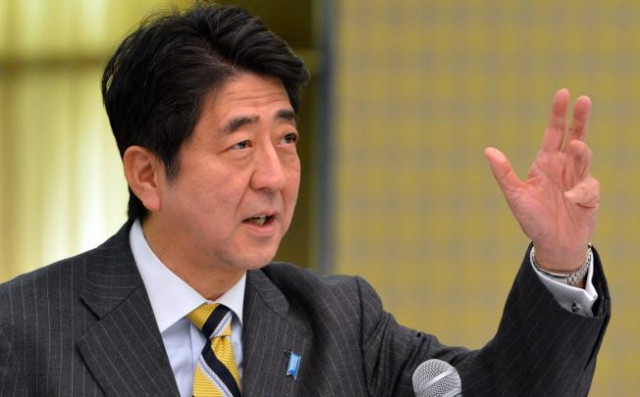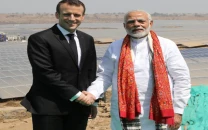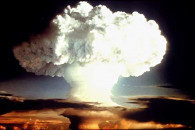Japan PM says China air defence zone move 'dangerous'
Japan to ask China to restrain itself while it continues to cooperate with international community, Japan PM says.

Japanese Prime Minister Shinzo Abe. PHOTO: AFP/FILE
Abe's warning comes after Washington said it would stand by him in the event of any military clash over the Senkaku Islands, which Beijing claims as the Diaoyus.
"I am strongly concerned as it is a profoundly dangerous act that may cause unintended consequences," Abe told parliament, reports said.
"Japan will ask China to restrain itself while we continue cooperating with the international community," Abe said.
The comments are the first from the premier on the issue since Beijing on Saturday announced it would require all aircraft flying over an area of the East China Sea to obey its orders.
US Secretary of State John Kerry declared Washington "deeply concerned", saying the move raised "risks of an incident".
"This unilateral action constitutes an attempt to change the status quo in the East China Sea," Kerry said.
The announcement of the area, which also includes waters claimed by Taipei and Seoul, provoked ire in both cities, with South Korean defence ministry spokesman Kim Min-Seok saying it was "regrettable".
Part of the zone overlaps South Korea's own air defence zone and incorporates a disputed, submerged, South Korean-controlled rock - known as Ieodo - that has long been a source of diplomatic tension with Beijing.
"I'd like to say once again that we have unchanging territorial control over Ieodo," Kim said Monday.
Japan's foreign ministry said it would not respect the Chinese demarcation, which it said had "no validity whatsoever in Japan".
Beijing is engaged in a series of bilateral tiffs over the ownership of islands and the waters surrounding them, including several separate disputes in the South China Sea.
But the most serious, and the one that analysts say has the potential to turn into an armed confrontation, is with Japan over the archipelago in the East China Sea.
The disagreement has simmered for decades, but snapped sharply into focus in September 2012 when Tokyo nationalised three of the islands.
Japan billed the move as an attempt to avoid a much more inflammatory purchase by a vocal nationalist, but China reacted with fury and relations went into meltdown.
The two countries now play an almost permanent game of cat and mouse in the area, with official ships and aircraft shadowing each other and warning the other side to leave.
Observers say the frequent presence of military or paramilitary bodies from both sides raises the risk that a miscalculation or a crash could quickly escalate into a conflict, dragging in the United States.
Chinese newspapers on Monday offered a high-handed rebuff to Japan's outrage over the air defence identification zone.
"Tokyo is hypocritical and impudent in its complaint with Beijing," said an editorial in the Global Times newspaper, which is close to China's ruling Communist Party.
The paper accused Japan of double standards as its own air defence zone as close as 50 kilometres to Russia and 130 kilometres from China.
"China has every fair and legitimate reason to establish its own air defence zone.
"If Japan sends warplanes to 'intercept' China's jet fighters, Beijing's armed forces will be bound to adopt defensive emergency measures," it said.
The world's second- and third-largest economies have significant business ties but the political relationship between them is heavily coloured by history.
Beijing maintains the islands have been its territory for hundreds of years and were illegally snatched by Tokyo at the start of an acquisitive drive across Asia, including a brutal invasion of China, that culminated in World War II.
Tokyo says Beijing only thought to claim them after oil was discovered in the nearby seabed at the close of the 1960s.



















COMMENTS
Comments are moderated and generally will be posted if they are on-topic and not abusive.
For more information, please see our Comments FAQ